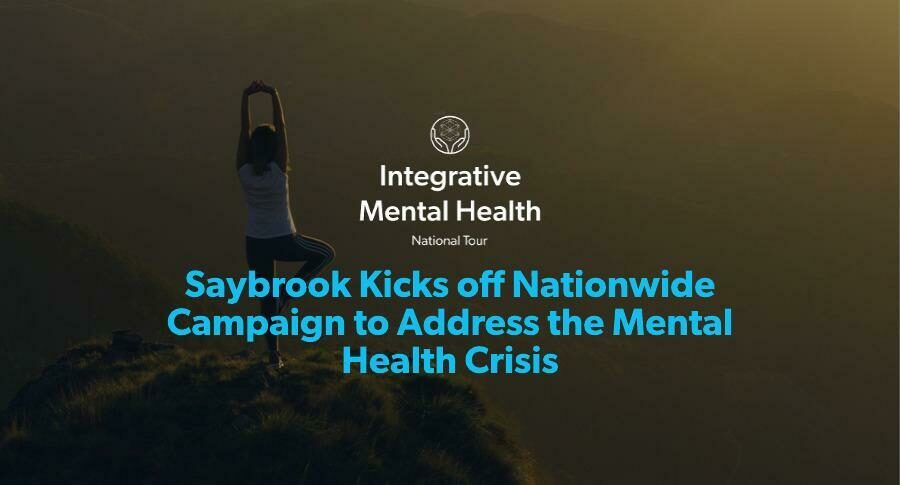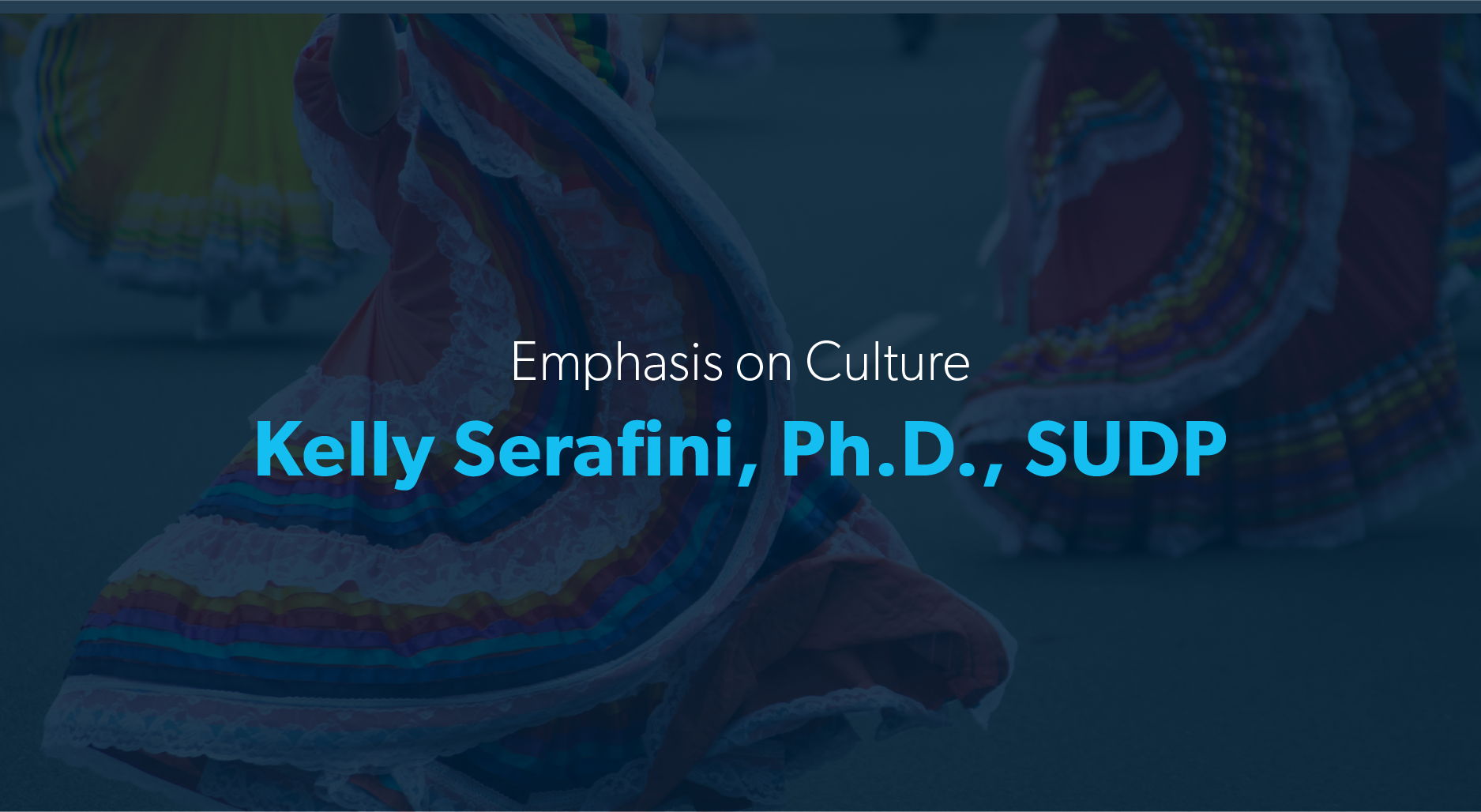Cultivating Wellness through Humanistic Applications
Our Ph.D. in Clinical Psychology: Existential and Humanistic Psychology Specialization draws upon our legacy’s insights and inspiration to prepare aspiring clinical practitioners who wish to make an impact on those seeking positive transformation in their lives. Through this doctoral program, you’ll explore the existential and humanistic landscape, learn to see the wholeness of a client, cultivate therapeutic relationships filled with presence, empathy, and support, and pursue your calling guided by our framework.
Within the Clinical Psychology Ph.D. program, the Existential and Humanistic Psychology Specialization curriculum teaches, ethics and laws of psychotherapy, the history of the field, the work of Rollo May and other icons, how psychology, philosophy, creativity, and spirituality overlap and enable psychological health, and how to apply this to clinical work and research.
Saybrook University is accredited by the WASC Senior College and University Commission (WSCUC), but the Ph.D. in Clinical Psychology: Existential and Humanistic Psychology Specialization does not have programmatic accreditation by the American Psychological Association (APA). This hybrid online Ph.D. in Clinical Psychology program may not meet year-in-residence requirements of some state professional licensing boards or agencies. To be eligible, graduates should consult their individual state licensing boards for any additional state-specific requirements.
Saybrook University’s Ph.D. in Clinical Psychology aligns with program requirements for professional licensure in several states. You will find more information on licensure on the professional licensure and certification disclosures page.
Our Mission
The Department of Humanistic Clinical Psychology cultivates innovative, multidisciplinary, socially and community engaged scholar-practitioners through rigorous education and training that values the whole person within their unique context, including the creative, spiritual, psychological, and sociocultural dimensions of human beings.
Ph.D. in Clinical Psychology: Existential and Humanistic Psychology Specialization Job Outcomes
The Existential and Humanistic Psychology Specialization program, as part of the Clinical Psychology doctoral program, is intended to prepare graduates for clinical practice. If you are interested in becoming a licensed psychologist or entering into private practice, you will need to verify the licensure requirements of your state.
You may also view notes on licensure here.
Additionally, you may also explore a variety of careers at health care facilities and beyond, including:
- Health care administrator
- Educational consultant
- Nonprofit director
- University professors
- Existential coach
- Academic researcher
- Spiritual counselor
Other Clinical Psychology Doctoral Programs
Interested in another Ph.D. specialization in clinical psychology? We offer multiple doctoral programs that may align more closely with your goals.
- Ph.D. in Clinical Psychology
- Ph.D. in Clinical Psychology: Advanced Psychological Assessment Specialization
- Ph.D. in Clinical Psychology: Applied Psychophysiology Specialization
- Ph.D. in Clinical Psychology: Complex Trauma and the Healing Process Specialization
- Ph.D. in Clinical Psychology: Consciousness, Spirituality, and Integrative Health Specialization
- Ph.D. in Clinical Psychology: Creativity, Innovation, and Leadership Specialization
- Ph.D. in Clinical Psychology: Jungian Studies Specialization
- Ph.D. in Clinical Psychology: Specialization in Teaching and Advanced Research (STAR)
*Credits required vary based on starting with a bachelor’s or master’s degree.
Program Components
Admissions Requirements
You may apply to the Ph.D. in Clinical Psychology program with a completed B.A., B.S., M.A., or M.S. from a regionally accredited college or university. A bachelor’s or master’s degree in Psychology or a related discipline is recommended. However, non-Psychology majors will be considered for admission. Applicants for the Ph.D. in Clinical Psychology, Existential and Humanistic Psychology Specialization degree must submit the following documents:
- An official transcript from an accredited university demonstrating successful completion of a bachelor’s degree, with a 3.0 GPA or better
- Resume or CV
- Personal statement
- One letter of recommendation from a professional reference
Sample Courses
Supervision in Clinical Psychology
This three-credit course critically examines methods, relationships, ethics, multiculturalism, and evaluative processes of clinical supervision. Special focus is given to establishing a meaningful supervisor-supervisee relationship. While you will learn about different theoretical orientations that may inform your supervisory experience, you will be encouraged to consider your role in these relationships from a humanistic standpoint that will foster growth in the supervisor, supervisee, and their clients.
Cognitive Behavioral Therapy Applied within a Humanistic and Integrative Approach
This three-credit cognitive behavioral therapy (CBT) course will offer a review of key foundational theories and concepts, as well as methods of assessing, conceptualizing, and treating patients using CBT approaches. You will also learn about the efficacy and limitation evidence for utilizing CBT in treating symptoms of several disorders. In addition to learning the key concepts of CBT and practicing core skills, you will examine how CBT can be integrated with humanistic and other integrative therapy approaches.
Mindfulness and Spirituality in Clinical Practice
This three-credit clinical course explores these recent trends that mirror aspects of the long-standing traditions of humanistic, transpersonal, and existential psychology in the integration of mindfulness-based meditation practices, spirituality, and religion and prayer in clinical practice. Through reflective inquiry, you will gain understanding regarding your own experience and views regarding these factors in therapy and how you might find yourself in relationship to them professionally.
Cost
Saybrook wants you to have the information you need to make an informed decision about your academic and career aspirations. Our cost calculator provides an estimated cost of attending Saybrook to earn your Ph.D. in Clinical Psychology: Existential and Humanistic Psychology Specialization degree.
Catalog
Please refer to our academic catalog for more information on the Ph.D. in Clinical Psychology: Existential and Humanistic Psychology Specialization program.
Program Learning Outcomes
Graduates of this specialization will possess the skills of:
- Critical Thinking: Graduates will demonstrate advanced critical thinking skills, utilizing a humanistic lens to analyze complex psychological phenomena and apply theoretical frameworks to real-world contexts.
- Cultural Competence: Graduates will possess cultural competence, display an understanding and appreciation of diverse cultures, experiences, and worldviews, and integrate this awareness into their professional practice.
- Ethical Awareness: Graduates will exhibit a strong ethical awareness, adhering to ethical guidelines in their research, teaching, and practice, and demonstrating a commitment to the well-being and autonomy of individuals and communities.
- Research Proficiency: Graduates will develop proficiency in conducting rigorous research informed by humanistic, existential, transpersonal, and phenomenological perspectives, employing qualitative and quantitative methodologies to advance the field of humanistic psychology.
- Social Justice Advocacy: Graduates will engage in social justice advocacy, actively promoting equity, inclusivity, and social change by addressing systemic disparities, advocating for marginalized populations, and contributing to the creation of a just and sustainable society.
- Applied Skills: Graduates will possess practical skills and interventions grounded in humanistic psychology, enabling them to facilitate personal growth, foster resilience, and promote well-being in various settings, including research, educational, community, and organizational contexts.
Career Outcomes
Saybrook University prepares you to make an impact in a variety of high-demand careers. Below, you will find possible career options and salaries associated with this degree.
Data is pulled by a third-party tool called Lightcast, which includes data from sources including the U.S. Bureau of Labor Statistics, the U.S. Census Bureau, online job postings, and other government databases. The information below represents a regional and national career outlook related to this degree program*. Saybrook University is dedicated to assisting you in achieving your career goals.
*Many degree programs are intended to fulfill licensure requirements in specific states. The data shown here may not represent the state where you currently reside. For more information on how this program is applicable to the requirements of your state, please speak with your admissions specialist.
Invest in Your Future
Saybrook University remains committed to keeping higher education affordable and accessible. Our Financial Aid Department is ready to offer guidance and support in determining suitable financial assistance tailored to your needs, including potential scholarship opportunities, grants, and more.
Faculty
Department Core Faculty
Vanessa Brown, Psy.D.
Associate Chair
Department Core Faculty
Adam Duberstein, Psy.D.
Department Core Faculty
Inma Ibanez, Ph.D.
Department Core Faculty
Betz King, Psy.D.
Department Core Faculty
Isaac G. Martinez, Ph.D.
Department Core Faculty
Cynthia Palmisano, Psy.D.
Department Core Faculty
Coordinator, Advanced Assessment Specialization
Susan Rarick, Ph.D.
Department Core Faculty
Director of Clinical Training and Field Placement
Portia Rawles, Psy.D.
Department Core Faculty
Director, Complex Trauma and the Healing Process Specialization
Kelly Serafini, Ph.D.
Department Core Faculty
Bonnie Settlage, Ph.D.
Department Core Faculty
Drake Spaeth, Psy.D.
Department Core Faculty
Director, Existential-Humanistic Psychology Specialization
Interim Coordinator, Jungian Studies Specialization
Associated Faculty
Kimberley Cox, Ph.D.
Associated Faculty
Jennifer DeDecker, Ph.D.
Associated Faculty
Randy Heinrich, D.M.
Associated Faculty
Robert Cleve, Ph.D.
Associated Faculty
Director of Creativity, Innovation, and Leadership Specialization
Walker Ladd, Ph.D.
Associated Faculty
Chair of the Department of Research
Director of Specialization In Teaching and Advanced Research
Marina Smirnova, Ph.D.
Associated Faculty
Director of Consciousness, Spirituality, and Integrative Health Specialization
Dr. Eric Willmarth
Associated Faculty
Director, Applied Psychophysiology Specialization
Adjunct Faculty
Todd Dubose, Ph.D.
Adjunct Faculty
Nathaniel Granger, Jr., Psy.D.
Adjunct Faculty
Louis Hoffman, Ph.D.
Adjunct Faculty
Amy Johanson, Psy.D.
Adjunct Faculty
Silvio Machado, Ph.D.
Adjunct Faculty
Cacky Mellor, Ph.D.
Adjunct Faculty
Melissa Oleshansky, Ph.D.
Adjunct Faculty
Megan Peitrucha, Psy.D.
Adjunct Faculty
Grant Rich, Ph.D.
Adjunct Faculty
Diana Rivera, Ph.D.
Adjunct Faculty
Michael Sakuma, Ph.D.
Adjunct Faculty
Kirk Schneider, Ph.D.
Adjunct Faculty
Drew Smith, Ph.D.
Adjunct Faculty
Amy Taylor, Ph.D.
Adjunct Faculty
University Learning Experience
Our Ph.D. in Clinical Psychology: Existential Humanistic Psychology Specialization program is a hybrid online program. Coursework is completed online and augmented with two five-day, in-person Residential Learning Experiences (RLE) per year. RLEs occur at the beginning of the Fall and Spring semesters in California. Every odd-numbered year, the RLE takes place during a larger Community Learning Experience (CLE), encouraging interaction with the larger Saybrook community. In this program, you will begin your studies with a virtual Welcome Week. Welcome Week activities, including a program orientation, are held online during the week before the start of Fall and Spring semesters.

Humanistic and Clinical Psychology Faculty
Saybrook’s Humanistic and Clinical Psychology faculty are practitioner-scholars dedicated to advancing their field through continued practice and comprehensive instruction. Meet some of our faculty members below.

- Former President, the Association of Black Psychologists, Inc.
- Co-Founder, Therapist-in-Residency Program
- Member, American Psychological Association Council of Representatives; Division 32 Society for Humanistic Psychology Board, and California Psychological Association
- Recipient, President’s Excellence in Teaching Award
UNBOUND: Humanistic Clinical Psychology
Graduate clinical psychology programs designed for those who wish to utilize a variety of evidence-based psychological interventions and approaches in clinical settings.



























